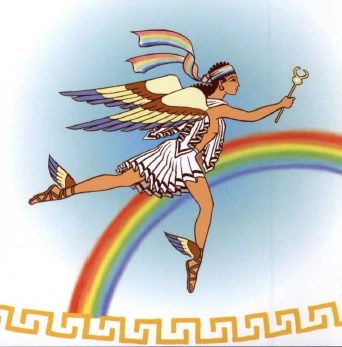Harpies (Swift Robbers) Greek The storm winds; daughters of Electra (3), a sea Nymph, and an ancient sea god, Thaumus; sisters of the goddess of rainbows, Iris.
Publié le 26/01/2014
Extrait du document

Harpies (Swift Robbers) Greek The storm winds; daughters of Electra (3), a sea Nymph, and an ancient sea god, Thaumus; sisters of the goddess of rainbows, Iris. In early stories, the Harpies were shown as beautiful winged women. They were said to appear suddenly and snatch up people and objects and were blamed for sudden disappearances. The Harpies served the great god Zeus, who wielded thunder and lightning as his weapons, and sent them along with storms to do his bidding. The poet Hesiod wrote that there were two Harpies and that their names were Aello and Ocypete. Homer names a third Harpy, Pordage, and says she was married to the western wind Zephyrus, and gave birth to the two great horses of Achilles. In later mythology, particularly the stories of Jason and the Argonauts, authors described the Harpies as vicious bird-like creatures with sharp talons that carried off food and precious treasures and gave off a terrible stench. In Roman mythology, Harpies attack Aeneas and his Trojan crew in Virgil's Aeneid. This poet names a yet another Harpy, Celaeno.
Liens utiles
- Nereids Greek The Nymphs of the sea, specifically the Mediterranean Sea; the daughters of Nereus, an ancient sea god, and Doris, a daughter of Oceanus.
- Stheno (Strong) Greek One of the three Gorgons, female monsters; daughter of Ceto, an ancient sea goddess, and Phorcys; her sisters were Euryale and Medusa.
- Thaumus (Wonder) Greek An ancient sea god, ranked among the second-generation of Titans; son of Gaia and Pontus; brother of Ceto, Phorcys, Nereus, and Eurybia.
- Euryal e (Wide-Stepping) Greek One of the three gorgons, female monsters; daughter of Ceto, an ancient sea goddess, and Phorcys; her sisters were Stheno and Medusa.
- Neda Greek One of the oldest of the Oceanids, sea Nymph daughters of the Titan gods, Oceanus and Tethys; considered by many Greek writers to be a second-generation Titan.































